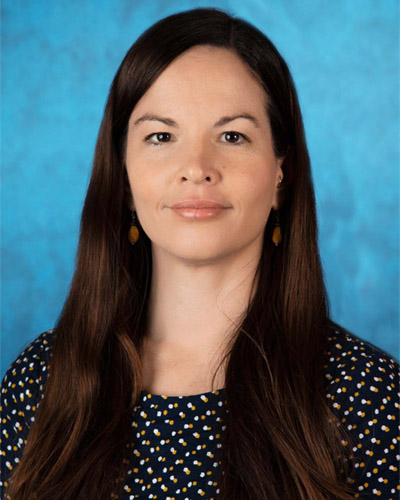
FEBRUARY 29, 2024 — UTSA has been selected as the primary recipient of a four-year, $935,000 grant from the USDA’s National Institute of Food and Agriculture (NIFA) to establish the Coalition for Regenerative Ecologies and Agriculture (CREA).
This coalition, co-located in San Antonio and in Veracruz, Mexico, will train at least 40 undergraduate and graduate students for a wide range of leadership-track careers in regenerative agriculture by developing their skills in global-resource management, community-engaged research and transcultural literacy.
Regenerative agriculture is a conservation and rehabilitation approach to food and farming systems that seeks to improve ecosystems by increasing their biodiversity and improving access to water. The benefit to this approach includes reduced costs, improved soil health and increased crop quality and yields.
Funding for CREA is provided by the USDA Hispanic-Serving Institutions Education Grants (HSI) Program, which was created in 2012 to strengthen innovative educational programming that prepares underrepresented students to become leaders in food, agriculture and renewable natural resource careers.
“Students will have the opportunity to develop research projects related to environmental justice, natural resource conservation and regenerative ecology and agriculture while applying their skills in real-world contexts alongside agricultural and ecology experts,” said Amelia King-Kostelac, principal investigator of the project and assistant professor of practice in the UTSA Department of Integrative Biology.
 Amelia King-Kostelac
Amelia King-KostelacEvery year for the duration of the program, CREA will fund a minimum of 10 undergraduate and graduate students from UTSA and St. Philip’s College (SPC) to participate in experiential learning opportunities. The students will have the option to choose from a community fellow program, a study abroad experience in Veracruz, Mexico, and/or a farming internship.
A highly competitive grant, the UTSA/SPC project was one of only 25 selected from across the nation to receive funding in the most recent round. The program’s collaborative network includes organizations such as Estampa Verde, a nonprofit directed by Antonio Carrillo Bolea that promotes regenerative agriculture in Veracruz, Mexico; and Terra Advocati, a local nonprofit led by Jess Mayes that uses interdisciplinary approaches to support regenerative systems. Both organizations have over 20 years of experience promoting interdisciplinary regenerative ecological projects that restore the soil, water and biodiversity of an area.
As the lead institution for the program, UTSA will receive most of the award, which will be directed to contracts and logistics to manage the program and to the university’s student-success initiatives.
 Jennifer Smith
Jennifer SmithThe grant team consists of faculty from UTSA and SPC who will provide students from both institutions with interdisciplinary perspectives on humanities, environmental science, regenerative agricultural and ecological practices. King-Kostelac will contribute to CREA by offering her experience in social science research methods, environmental studies, and student success, including leading and coordinating multiple student scholar programs and internships with federal agencies.
Joining King-Kostelac is Jennifer Smith, assistant professor in the UTSA Department of Integrative Biology. She will lend her expertise in wildlife ecology, global change biology, private lands and natural resource management to provide opportunities for students to engage in biodiversity assessment related to regenerative agriculture and develop knowledge about the effects of land use on biodiversity.
Additionally, Kenneth Walker, associate professor in the UTSA Department of English, will bring his expertise in interdisciplinary environmental communication and community-engaged research to support the program’s emphasis on field methods, digital media production and place-based regenerative ecologies.
Marissa Ramirez, will lead efforts at St. Philip’s College. An instructor of English and Mexican American Studies, she will offer her expertise in interdisciplinary, community and site-responsive cultural work to create opportunities for students to explore the intersections of art, culture, ecology and regenerative practices.
 Kenneth Walker
Kenneth WalkerThe CREA program is representative of UTSA’s focus on preparing students for successful careers and transdisciplinary research excellence.
“Our team is excited to implement this innovative program, which will support student success at both UTSA and St. Philip’s College and also build a network of researchers and practitioners dedicated to supporting regenerative agriculture partnerships between San Antonio, Texas, and Veracruz, Mexico,” Ramirez said.
“CREA will provide students with unique opportunities to develop interdisciplinary scientific and humanities skills that will help them contribute to regenerative ecological work in local and international contexts, while also gaining essential hands-on technical knowledge, in-the-field data collection and applied principles of regenerative agriculture, forestry and animal husbandry,” Smith added.
The USDA Hispanic-Serving Institutions Education Grants (HSI) Program is a competitive grant that is only available to Hispanic Serving Institutions where the undergraduate student population is at least 25% Hispanic. UTSA was designated as an HSI in 1994. As of the fall 2023 semester, 59% of the university’s student population identified as Hispanic or Latino.
“Our vision is to foster a transnational student exchange program for transdisciplinary environmental research, teaching and community engagement, and CREA is one essential part of fulfilling that vision,” King-Kostelac said.
UTSA Today is produced by University Communications and Marketing, the official news source of The University of Texas at San Antonio. Send your feedback to news@utsa.edu. Keep up-to-date on UTSA news by visiting UTSA Today. Connect with UTSA online at Facebook, Twitter, Youtube and Instagram.
Move In To COLFA is strongly recommended for new students in COLFA. It gives you the chance to learn about the Student Success Center, campus resources and meet new friends!
Academic Classroom: Lecture Hall (MH 2.01.10,) McKinney Humanities BldgWe invite you to join us for Birds Up! Downtown, an exciting welcome back event designed to connect students with the different departments at the Downtown Campus. Students will have the opportunity to learn about some of the departments on campus, gain access to different resources, and collect some giveaways!
Bill Miller PlazaJoin us for an intimate evening of cocktails, conversation, and culinary inspiration with Pati Jinich, Emmy-nominated chef and James Beard Award-winning author. Enjoy light bites and signature drinks in the warm, modern setting of Mezquite as Pati connects with guests over her passion for Mexican cuisine and storytelling.
Mezquite Restaurant in Pullman Market, 221 Newell Ave., San Antonio 78215From inspired courses to thoughtful pairings and a rich sense of community, the Ven a Comer Signature Dinner is a night of shared meals, shared stories, and unforgettable flavor.
Stable Hall (Pear Brewery), 307 Pearl Pkwy, San Antonio 78215Come and celebrate this year's homecoming at the Downtown Campus with food, games, giveaways, music, and more. We look forward to seeing your Roadrunner Spirit!
Bill Miller PlazaThe University of Texas at San Antonio is dedicated to the advancement of knowledge through research and discovery, teaching and learning, community engagement and public service. As an institution of access and excellence, UTSA embraces multicultural traditions and serves as a center for intellectual and creative resources as well as a catalyst for socioeconomic development and the commercialization of intellectual property - for Texas, the nation and the world.
To be a premier public research university, providing access to educational excellence and preparing citizen leaders for the global environment.
We encourage an environment of dialogue and discovery, where integrity, excellence, respect, collaboration and innovation are fostered.